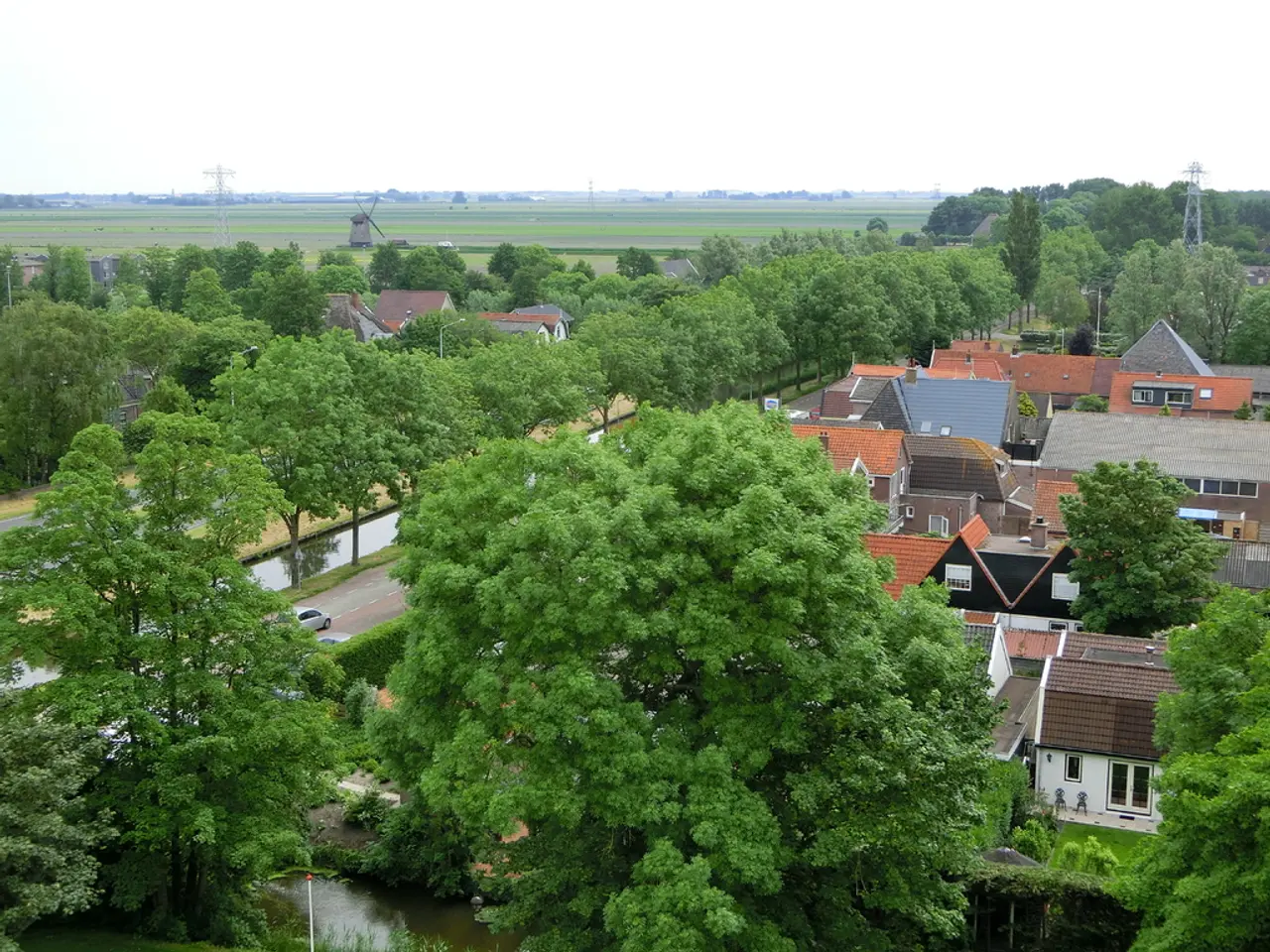Is This German Town Embracing Climate Obsession, Some Might Argue? Here's the Lowdown. This town stands out from the rest for an unique trait, causing quite a stir among experts.
Windmill construction stirs up northern German town for three residents
There isn't another like it in our nation. A special village is making headlines due to an ambitious bet on sustainable energy production. However, this undertaking also stirs controversy.
Video
Is Feldheim Going Overboard with Sustainability?
Video
Fossil fuels are the primary culprits behind climate change due to emission of greenhouse gases. In 2024, the share of renewable electricity in total consumption in this village was over 50 percent, the Federal Environment Agency (UBA) reports, a step in the right direction. Climate experts, however, stress that bolder actions are necessary. This small town appears to be taking the matter quite seriously: It is the only one that has been entirely energy-independent for 15 years.
Continue reading
This means that all electricity comes from renewable sources. But the village is not only capturing the attention of Germany; "energy tourists", around 3,000 annually, are reportedly visiting to witness the innovation. However, some experts are now critiquing this concept. It might not be economically sound or logical for every village to have its own network. Instead, political reforms are required. These should make it simpler to use regional electricity and keep it affordable.
Video
Meet the Pioneer: Feldheim, Brandenburg
Video
The energy-autonomous village is Feldheim, home to a wind turbine for every three residents. Approximately 130 people reside there. Apart from wind turbines and solar plants, a biogas plant constructed in 2008 also exists. The majority of the energy generated is fed into the public grid, while residents use only a portion. The village likely symbolizes innovation and sustainability to many, while detractors may view the idea more pragmatically. Whether other towns in our country will follow Feldheim's lead and what the future of the energy revolution holds remains to be seen.
Advertisement
Expanding Horizons
Advertisement
These energy-autonomous towns face several criticisms and potential issues despite their successes. Technical expertise requirements for maintaining complex renewable energy systems can be an obstacle, making the development, operation, and upkeep difficult [1][2]. Financing and economic viability are often hurdles too, as limited financial resources in community-led projects might hinder innovation [1][2].
Advertisement
Regulatory and policy barriers such as convoluted permitting processes and an absence of supportive legal frameworks intended for small-scale or community-owned renewable projects can make expansion or integration with broader energy markets challenging [1][2]. Energy security and reliability concerns stem from the intermittency and variability in energy supply and the need for robust energy storage or backup systems to guarantee continuous availability for isolated communities. Lastly, the success of Feldheim might not be replicated easily due to unique local conditions and existing infrastructure, and scaling this model to larger or less cohesive communities might not be straightforward.
Advertisement
References:[1] https://www.researchgate.net/publication/316810890_Small_grid_communities_in_Germany_A_Review_of_Governmental_Policies_and_Regulations[2] https://www.researchgate.net/publication/321791512_Roles_of_regulations_institutions_and_entrepreneurship_in_developing_renewable_energy_community_enterprises_In_Germany
Advertisement
- The ambition of Feldheim, a small town in Germany, to be entirely energy-independent for 15 years, showcases a commitment to renewable energy in the face of climate change.
- Despite the success of Feldheim, there are criticisms regarding the technical expertise requirements, financing, and economic viability of maintaining complex renewable energy systems in energy-autonomous towns.
- The regulatory and policy barriers, such as convoluted permitting processes and a lack of supportive legal frameworks, also pose challenges for expansion or integration with broader energy markets.
- Energy security and reliability concerns, stemming from intermittency and variability in energy supply and the need for robust energy storage or backup systems, are additional challenges faced by energy-autonomous towns.




